Special report: £275m 'boost' in Yorkshire council funding covers just half of cuts since 2010
Communities Secretary Robert Jenrick confirmed last month councils in England would get an increase of £2.9bn in funding from central Government in 2020/21, with £275m of that coming to councils in Yorkshire and the Humber.
But figures obtained by The Yorkshire Post found this came in far below the £485m which had been removed from local government in central funding since austerity began in 2010.
Advertisement
Hide AdAdvertisement
Hide AdA spokesman for the Ministry of Housing, Communities, and Local Government (MHCLG) said: “The funding plans provide certainty for councils which are responsible for delivering the services their communities need and will give local residents the final say on council tax increases.”
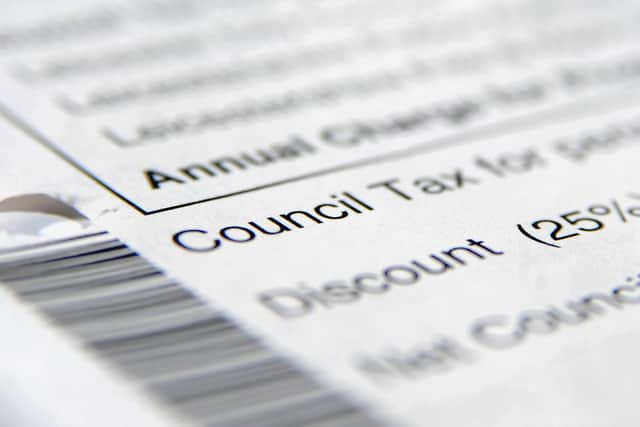

They said in 2020/21, councils in Yorkshire and the Humber will have access to £4.5bn in funding, a 6.5 per cent increase from £4.2bn in 2019/20.
But the extra £275m represents just 56 per cent of the £485m councils say they have lost in Government funding since 2010.
And industry bodies have warned that without a significant overhaul to funding schemes, the Government will be unable to achieve the "levelling up" agenda it relied on to win December's election.
Advertisement
Hide AdAdvertisement
Hide AdThis newspaper approached the region’s councils directly after Mr Jenrick claimed the £275m figure was “the biggest boost in councils’ spending power for a decade across Yorkshire”.
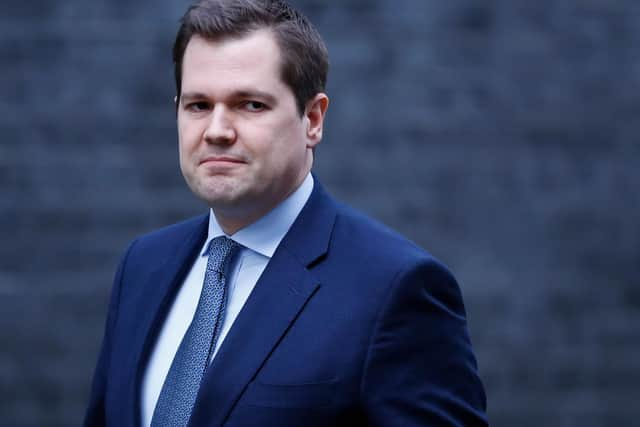

Councils were asked for their revenue budgets, including the proportion of Government funding, and council tax information, from 2010/11, and 2020/21.
Data from the 14 which responded revealed revenue - money not spent on one-off large projects and used for ongoing operational costs - had dropped by £95m (four per cent) in that period.
But the Government-funded part of that figure had dropped by £485m (47.44 per cent), with rising council tax rates and other locally-funded initiatives such as raising car park charges or asking residents to pay for garden waste bins making up the shortfall.
Advertisement
Hide AdAdvertisement
Hide AdThis figures are likely to be higher with all Yorkshire councils taken into consideration.
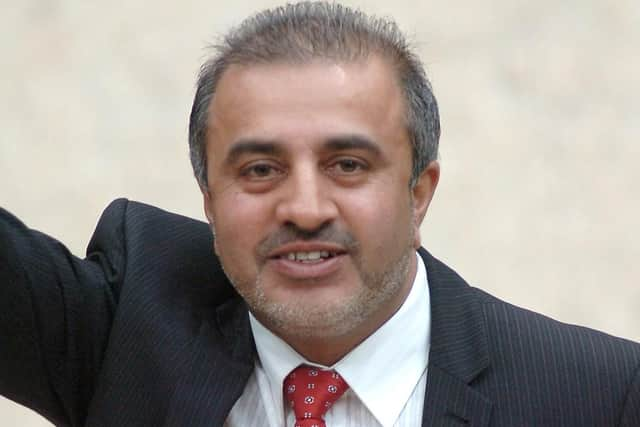

And even with the changing way councils are funded, local authorities being allowed to keep more of their business rates, and council tax going up, council coffers are still suffering when compared to when austerity first hit.
Kirklees Council was one of those who took the biggest hit, losing 74 per cent of Government funding between 2010 and now.
Once cost-saving measures were put in place this was an overall loss of 36 per cent of their revenue budget.
Advertisement
Hide AdAdvertisement
Hide AdCouncillor Shabir Pandor, Leader of Kirklees Council, said the council had lost £150m in central Government funding in the last decade.
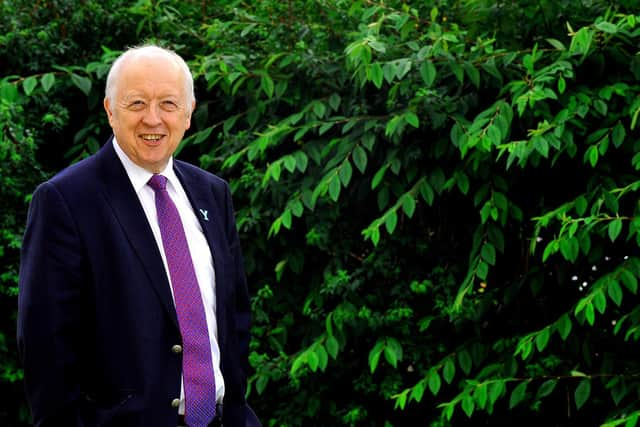

He said: “We are the seventh lowest funded council in the country, per head of the population. We don’t get a fair deal but we will never let this get in the way of our ambition.”
Both Selby and Harrogate councils saw their Government funding rise over that time, it is understood due to ways in which funding decisions were made changing.
But nationally there was a warning that without change in how local Government is supported, the funding gap was only going to widen.
Advertisement
Hide AdAdvertisement
Hide AdCarl Les, leader of North Yorkshire County Council and the County Councils Network (CNN) finance spokesperson, said: “Somehow we need to find a different way [to fund local Government.”
CNN found last month that all councils face a £20bn black hole by 2025, despite council tax rises and extra money from Government. The Local Government Association (LGA) estimated the funding gap at the lower amount of £6.5bn, but experts were in agreement that the current situation was unsustainable.
David Williams, chairman of the County Councils Network, said: “Council leaders have worked hard to convince ministers of the need to provide councils with additional resources and they have responded with the largest increase in funding for over a decade.
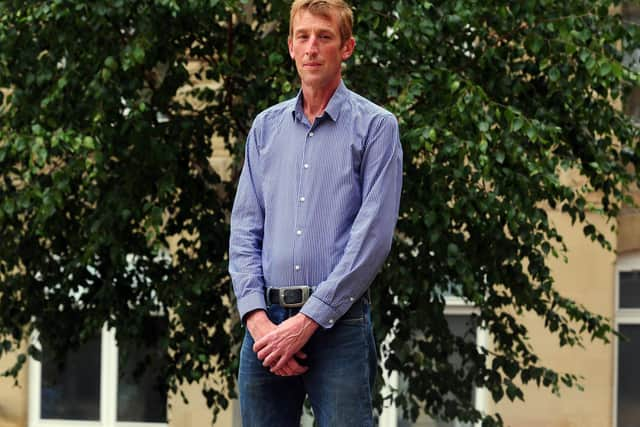

“This funding is welcome and a lifeline for local services. However, despite this, today’s new financial forecasts for the next five years make tough reading for councils and taxpayers alike.”
Advertisement
Hide AdAdvertisement
Hide AdMr Les said councils faced a tough balancing act whereby they must weigh up the Government funding they get - or miss out on - with council tax rises, to try and make the sums add up.
And he said this had led to council tax rises to try and maintain that bottom line when Government funding went down.
He said: “I don’t detect a great appetite in council leaders to keep putting council tax up all the time, we’re very conscious that some people have less ability to pay it and that even when you put it up by a modest amount, it’s added to an already large figure.”
Income from council tax across the Yorkshire councils question rose by 25 per cent (£255m) between 2010/11 and 2020/21.
Advertisement
Hide AdAdvertisement
Hide AdLeader of Leeds City Council Judith Blake told her authority’s budget setting meeting a fortnight ago that “cuts continue to push the burden onto Leeds council tax payers”.
She said: “I have news: austerity for this council is not over.
"Since 2010, the cumulative total of the cuts to our funding is an astonishing £1.7bn - that means the tories have taken £1.7bn out of services for people in Leeds.
"Even though on paper, it looks like our budget is increasing by £9m - don't let the Conservatives fool you.
Advertisement
Hide AdAdvertisement
Hide Ad"The failure of the grant to cover increased cuts and pressures, it means this council needs to find even more savings.”
While Richard Foster, leader of Craven District Council, said: “It is quite clear that the burden of paying for council services has shifted considerably from central government to local taxpayers and by people paying more for the services they use.”
He said: “We have invested in our buildings and services in order to reduce costs and increase income. What has been severely curtailed however is the level of resilience within the council, so it is much more difficult to deal with unexpected or extraordinary events, such as the recent floods.
“On current projections, from 2020/21 onwards, the council is facing a budget gap of around seven per cent per year.
Advertisement
Hide AdAdvertisement
Hide Ad“Without a change of approach from central government, there will have to be substantial cuts to services, ongoing increases to Council Tax and increased charges for services every year to bridge the gap.”
And there was a consensus that services had been cut that would have - and potentially should have - survived due to a lack of funding, mainly in social care and care for the vulnerable, such as the homeless.
Rotherham Council’s Strategic Director of Finance and Customer Services, Judith Badger, said: “The Council has had to make budget reductions of over £200m across this 10 year period in order to limit service provision within the funding available.”
Although the council’s overall budget rose by seven per cent from 2010 and 2020 she insisted this was not “like for like” as councils have been forced to take on responsibility for public health, council tax support and local welfare provision, in addition to inflation and increased demand for services.
Advertisement
Hide AdAdvertisement
Hide AdThe Government grant funding for Rotherham over that period fell by 36 per cent, and Ms Badger added: “The real-terms reduction is much greater.”
Martin Reeves, Local Government Finance Spokesperson for Solace, an organisation which represents local authority chief executives, said: “The window of opportunity to effectively support the Government’s levelling-up agenda is shrinking.
"Without major new spending commitments to bolster battered local budgets, which should help all our people to achieve their potential and reduce future demand for services across the public sector, our national inequalities gaps will never be closed.”
Mr Reeves said despite positive moves in the Budget, there was far more that needed to be done.
Advertisement
Hide AdAdvertisement
Hide AdHe said: “While there were a flurry of positive announcements in the Budget, including new cash for roads and railways, buildings and broadband, the Chancellor’s plans do very little to reverse a decade of cuts to local government and the vital services our communities and economies rely on.”
Both Solace and the LGA have campaigned for a longer-term funding settlement for councils.
An LGA spokesman added: “This year saw councils receive extra Government funding, extra council tax raising powers and the continuation of key grants worth up to £3.5bn this year. However, this does not negate the historic funding reductions.
“Councils continue to face severe funding and demand pressures that continue to stretch local services to the limit and a funding gap that could reach almost £6.5bn by 2025. Demand on services, such as adult social care, children’s services and homelessness services, are rising. To try and protect these services, councils are increasingly having to divert funding from other services to try and cope.
Advertisement
Hide AdAdvertisement
Hide Ad“We are pleased the Chancellor has signalled the start of the Spending Review process.
"It needs to provide a sustainable, long-term funding settlement for councils which means they can improve services and not just keep them going. With long-term investment, councils can protect local services, improve the lives of their communities and meet the significant ongoing pressures they face both now and in the future.”
Mr Reeves said: “Council finances are already in a precarious position due to a combination of cuts and rapidly rising demand for statutory services, particularly in children’s and adults social care.
"Unless the Government seizes the opportunity at this summer’s Spending Review to provide local government with a truly sustainable multi-year funding settlement we fear for the impact this will have on councils’ ability to boost local economies and improve the life chances of their residents.
Advertisement
Hide AdAdvertisement
Hide AdHe added: “The Government needs to invest just as much money in human infrastructure if we are to deliver meaningful improvements to peoples’ lives across the country, and that has to include a major, systemic shift in spending towards prevention and early intervention.”
'Turning of a corner'
The Chancellor Rishi Sunak said there has been a “turning of the corner” in local Government funding.
Speaking in Leeds on Thursday Mr Sunak, who the day before had delivered the Budget just weeks into the job, drew on his experience as Local Government Minister to hammer home his commitment to councils.
He said: “I speak to Carl [Les, leader of North Yorkshire County Council] all the time so I have a very good idea about what’s going on in North Yorkshire.
Advertisement
Hide AdAdvertisement
Hide Ad“Also I was Local Government Minister so I would like to think I have a very good understanding of what’s going on on the ground.”
Mr Sunak threw some help to local government in the wake of coronavirus on Wednesday, and announced authorities would be able to draw upon a short term £5bn coronavirus emergency fund shared with the NHS to support social care services and vulnerable people.
On funding he told The Yorkshire Post: “The settlement this year, Robert [Jenrick, Communities Secretary] is right to say it’s a huge year on year increase, four per cent in real terms, that is the largest for a decade, it comes on top of a settlement that I did last year, which was also one of the largest increases in a very long time.
“So it shows an absolute turning of the corner in terms of local government investment in local government services.”
Advertisement
Hide AdAdvertisement
Hide AdBut he admitted there was an issue with social care, as councils await a long-promised social care green paper and there was little mention in the Budget of the sector.
Mr Sunak said: “With social care, particularly we committed an extra billion pounds of cash grant to local authorities, that’s starting this year, that money will be sustained, that’s a significant investment that deals with the immediate pressures in the system but there are long term demographic pressures on the social care system.
“That’s why we’re committed to reforming it in the long term and when we get to the spending review in the middle of the year that’s another chance for us to have a look at it.”
But in the Chancellor's own constituency, "significant cut" had been made.
Advertisement
Hide AdAdvertisement
Hide AdA spokesman for Richmondshire District Council said: “The Council has made significant cuts and increased charges in response to reducing external funding which has meant that essential service levels are now being maintained, but with little opportunity to reduce services further.”
While the workforce at another North Yorkshire council has been slashed by a third due to cuts from central Government funding.
Government funding at Craven District Council dropped by 39.57 percent between 2010/11 and 2020/21 according to data provided by the council.
And council leader Richard Foster said the authority faced a funding gap of seven per cent a year without a change in approach.
Advertisement
Hide AdAdvertisement
Hide AdHe said: “The council’s budget is less than 10 per cent higher in cash terms now than it was in 2010. When you take account of inflation over the same period, that represents a significant cut.
“The council’s workforce has reduced by around a third over the period as a consequence but it has managed to continue to deliver services to the community.”
How is local Government funded?
The ways in which local Government has been funded in recent years has created a complex picture.
Councils have taken on more responsibilities and different grants have been introduced, but it remains a balance between raising money through council tax and business rates, and funding from Government.
Advertisement
Hide AdAdvertisement
Hide AdCouncils have taken on responsibility for council tax support, public health, and local welfare provision.
Previously councils would send the income from business rates to the Government, for it to then be redistributed between all councils. Now, local authorities keep their own business rates but then either pay a tariff or get a top-up if they bring in too much or not enough respectively.
From this year the share that they collectively keep will be raised to 75 per cent and the main Government grants will be phased out.
The Government is also conducting a review of council funding but uncertainty remains over the figures as town hall bosses wait for the conclusions.
Advertisement
Hide AdAdvertisement
Hide AdThe Fair Funding Review was launched in 2016 to remodel the way funds are allocated to local authorities.
Its conclusions are expected to govern funding allocations for 2021/22, but the conclusions have not yet been released and are expected in the Spring.
The Ministry of Housing, Communities and Local Government said this is the earliest practicable date to implement the review through the next local government finance settlement.
Doncaster Mayor Ros Jones said: “We are awaiting the results of the Government’s Fair Funding Review.
Advertisement
Hide AdAdvertisement
Hide Ad“We hope that Government will take on board our consultation response, particularly the omission of deprivation from the foundation formula.
"It is completely unacceptable that deprivation should not be included in the proposed foundation formula, which will fund many of the services that our more vulnerable communities rely on and to include a measure of rurality, without any objective evidence, in the Area Cost Adjustment that will apply to all funding.
"Without full transparency and clear objective evidence supporting the proposals, the credibility of the review will be fatally undermined. This is not about party politics, but about ensuring Doncaster rightfully receives its fair share of Government Funding, to enable us to deliver the services that our residents deserve and need."
The Government said the review will deliver a more robust and transparent funding formula for local authorities, reflecting current need and using the most up-to-date available data.
Advertisement
Hide AdAdvertisement
Hide AdThey said it takes account of local authorities’ needs, balanced against their resources, and considered against any transitional arrangements the Government may wish to make.
'£6.5bn funding black hole by 2025'
Without change, local services in England will face a funding gap of nearly £6.5bn by 2025, according to analysis from the Local Government Association (LGA).
LGA research found the biggest black holes were in adult social care where an extra £3.9bn will be needed, as the organisation urged that cross-party talks on the future of the sector were carried out.
Prime Minister Boris Johnson promised these talks would be held within the first 100 days of Government.
Advertisement
Hide AdAdvertisement
Hide AdThe Government responded to the LGA’s call to provide councils with desperately-needed new funding this year, alongside council-tax raising powers and the continuation of key government grants.
This halved the funding gap councils faced in 2020/21 compared to last year and means councils will be able to meet extra demand and cost pressures they face.
But the organisation also wants the Government to use the spending review in July to provide a long-term, sustainable funding solution.
The LGA said nationally nearly £15bn in Government funding had been cut in the last decade, with many councils facing significant difficulties.
Advertisement
Hide AdAdvertisement
Hide AdAnd they said even with the extra cash for 2020/21, there will be a shortfall of £6.5bn nationally by 2025, particularly hitting adult and children’s social care and homelessness support.
James Jamieson, Chairman of the LGA, said: “This year’s positive funding settlement will help councils meet the rising cost and demand pressures they face this year. This means more older and disabled people able to live the lives they want to lead and more of our most vulnerable people can be supported.
“This is only a one-year settlement.
“Councils continue to face severe funding and demand pressures that continue to stretch local services to the limit and a funding gap that could reach almost £6.5bn by 2025.”
He said councils need “a sustainable, long-term funding settlement for councils which means they can improve services and not just keep them going”.
Advertisement
Hide AdAdvertisement
Hide AdHe said: “With long-term investment, councils can protect local services, improve the lives of their communities and meet the significant ongoing pressures they face both now and in the future.”
A Government spokesman previously said: “We will continue to progress the fair funding review through close collaboration and engagement with the local government sector, and aim to publish a consultation with indicative allocations in spring 2020."
Comment Guidelines
National World encourages reader discussion on our stories. User feedback, insights and back-and-forth exchanges add a rich layer of context to reporting. Please review our Community Guidelines before commenting.